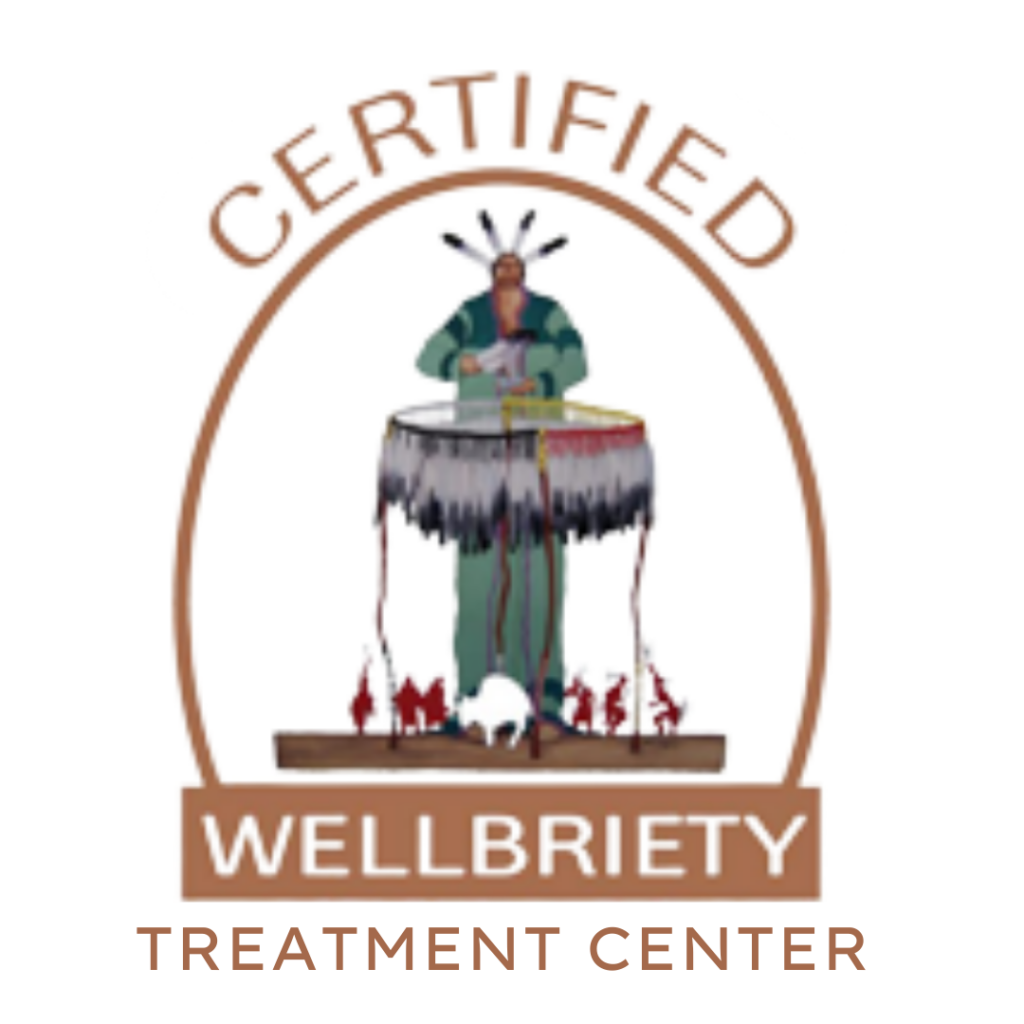Dual Diagnosis Treatment
Treating the complexities of co-occurring mental health disorders and substance use disorders (SUDs) poses unique challenges to traditional treatment models. To effectively support those battling mental illness and substance abuse, dual-diagnosis treatment offers specialized, evidence-based care for long-term recovery.
Over the past few decades, researchers have made considerable progress in treating co-occurring disorders. With improved diagnostic criteria, it’s clear that addressing both conditions maximizes recovery success. Integrated dual-diagnosis treatment offers personalized care tailored to meet your specific needs and goals.

What Is Dual Diagnosis?
Co-occurring disorder is the co-existence of both substance abuse and mental illness in an individual. Dual diagnosis, therefore, is being diagnosed with a substance abuse disorder and a mental health disorder. Because medical experts see a link between the two conditions, dual diagnosis refers to being diagnosed with both as a connected issue.
Unfortunately, substance abuse and mental health issues frequently go hand-in-hand. The National Institute on Drug Abuse (NIH) reports that 37.9% of the 20 million adults in the United States with SUD also have mental illnesses, which is almost 8 million people.
Common co-occurring disorders are:
- Clinical depression
- Anxiety
- Post-traumatic stress disorder (PTSD)
- Bipolar disorder (BD)
- Attention-deficit hyperactivity disorder (ADHD)
- Schizophrenia
According to the National Library of Medicine (NLM), adults with mental illness are twice as likely to also abuse substances. This is partially because the desire to self-medicate the symptoms of mental illness makes individuals more susceptible to addiction. Due to the risk of self-medicating, it makes sense that SAMHSA’s 2021 National Survey on Drug Use and Health found that around 9.2 million adults in the United States have a co-occurring disorder.
What Causes Co-Occurring Disorders?
Co-occurring disorders can be caused by a number of factors about a person and their life. These include genetics (including a family history of mental illness or addiction), environment (including living and work situation), family life, stress, past trauma (known to exacerbate mental disorders and substance abuse), economic situation (like history of poverty), grief from loss, and more.
Each of these are considered potential causes; most accurately, a combined number of factors lead to addiction and disease. Each situation also depends on the resiliency of the individual, but fortunately, resilience tactics can be taught and learned through therapeutic treatment.
What Happens First: Substance Abuse or Mental Health Disorders?
There’s no one answer to whether substance abuse or mental illness materializes first. It happens differently on a person-to-person basis. While no two people have the same experience with mental health or addiction, there are a few common situations where one disorder is more likely to cause the other.
Examples of how mental health disorders can lead to substance abuse include:
- Teens and young adults may try to lower symptoms of social anxiety by binge drinking alcohol.
- College students often abuse prescription stimulants like Adderall or illicit stimulants like cocaine to pull all-nighters.
- Veterans with PTSD often attempt to lower their maladaptive fight-or-flight response with drugs and alcohol.
- Chronic pain patients may abuse prescription opioids like oxycodone or illicit opioids like heroin as pain management.
Examples of how substance use disorders can lead to mental illness include:
- Being trapped in the cycle of addiction can lead to anxiety, hopelessness, and helplessness.
- Drug and alcohol withdrawal often results in anhedonia (lack of pleasure), dysphoria (depression), anxiety, and paranoia.
- Substance abuse can result in symptoms of psychosis and even trigger the onset of schizophrenia in some cases.
- Abusing drugs and drinking alcohol in risky situations can lead to traumatic experiences that result in PTSD.
Regardless of the order of onset, substance abuse can increase a person’s underlying risk for mental disorders and be the final push that affects their quality of life. Substance abuse can also trigger new symptoms or worsen the state of one’s mental health. Abusing substances can also interfere with prescription medications, lessening their impact or leading to dangerous side effects.
The Connection Between Substance Abuse and Mental Health
There are many connections between substance abuse and mental illnesses. In a major study on the prevalence of substance use disorders (SUDs) and co-occurring mood and/or anxiety disorders, research depicts extremely high rates of co-occurrence in the US population, confirming the strong link between the disorders.
These statistics highlight the prevalence of co-occurring substance use and mental health disorders:
At the time of the study, 292.8 million adults lived in America; of those individuals…
- 19.4 million adults in America had a substance use disorder (SUD).
- 17.6 million adult Americans (almost 9%) had an alcohol use disorder (AUD).
- 4.2 million adult Americans (roughly 2%) had a drug use disorder (DUD).
Of the 292.8 million adults living in America at the time of the study,
- 19.2 million adult Americans (over 9%) had a mood disorder.
- 23 million adult Americans (over 11%) had an anxiety disorder.
Of the 19.2 million adults with an independent mood disorder…
- Nearly 4 million (20%) also had a comorbid substance use disorder.
Of the 23 million adults with an independent anxiety disorder…
- Around 4.6 million (15%) also had a comorbid substance use disorder.
Note: An “independent” mental health disorder that co-occurs with a substance use disorder is a psychological condition, such as depression or anxiety, that would persist with or without the presence of substance abuse.
When compared to those with independent mental health disorders and substance use disorders, a considerably low amount of Americans experience substance-induced mental health disorders.
- A little over 200,000 adults experienced substance-induced mood disorders.
- Just shy of 51,000 adults experienced substance-induced anxiety disorders.
Of people who sought treatment for an alcohol use disorder (AUD)…
- Over 40% also had a mood disorder.
- Over 33% also had an anxiety disorder.
Of people who sought treatment for a drug use disorder (DUD)…
- Over 60% also had a mood disorder.
- Over 43% also had an anxiety disorder.
Who Benefits from Dual Diagnosis Treatment?
Unfortunately, the NIH reports that only 9% of people with co-occurring disorders receive treatment for both. This means the rest are either only getting treated for their substance abuse, only getting treated for their mental health issues, or not receiving treatment at all. This statistic is alarmingly low and shows the need for more understanding of the link between SUD and mental illness.
Every person with co-occurring disorders would benefit from dual diagnosis treatment that targets both key issues. Why? The holistic treatment mindset that we at Royal Life Centers have believes that these diseases stem from the same root problems. Both substance abuse and poor mental health can be manifestations of trauma. To only look at one aspect of a person’s pain and struggle is to leave whole parts of them untreated. Only when treatment is person-focused and trauma-informed can total healing be accomplished.
Have any questions?
Treatment for Dual Diagnosis
Dual-diagnosis treatment programs provide evidence-based care for co-occurring conditions at the same time to bring about true healing and recovery. Treatment for co-occurring disorders focuses on treating mental health and addiction. This comprehensive approach is what leads to recovery.
Dual-diagnosis treatment programs include services such as:
- A full continuum of care
- Licensed and experienced medical staff
- 24/7 supervision in inpatient levels of care
- Detoxification and withdrawal management
- Medication-assisted treatment (as needed)
- Psychiatric medication management
- Integrative case management
- Seeking Safety curriculum
- Trauma-informed care
- Addiction and mental health education
- Evidence-based therapies
- Expressive arts therapies
- Holistic and wellness services
- Relapse prevention planning
- Life-skills training
- Experiential activities
- Physical fitness options
- Nutrition counseling
- Peer support groups
- Family integration
- Alumni services
- Sober living residences
Integrative treatments for co-occurring disorders can improve treatment success rates because they get to the root of the issues. Both disorders negatively interact with each other, so effective treatment must address both. Integrative treatments instill hope in individuals as they work through their struggles and create actionable goals for an addiction-free, healthy future. They’re also shown to promote long-term recovery.
Medication Management for Substance Abuse and Mental Health Disorders
Dual diagnosis medications often include mood stabilizers, symptom withdrawal medication like Suboxone, anti-depressants, or antipsychotics. Pharmacological intervention, when combined with therapeutic services, assists in recovery because it allows individuals to start from a stable foundation that they can build off of during treatment. For example, if an individual is experiencing regular frightening psychotic episodes, treating their mental wellness or addiction will not be effective until they’re stabilized at a place where they can begin therapeutic treatment. For this reason, psychiatric medication management allows mental illness symptoms and withdrawal symptoms to be managed so recovery can begin.
Dual Diagnosis Therapy Services
Dual diagnosis therapy services provide personalized care for both mental illness and substance abuse at the same time. There’s a wide range of dual diagnosis therapy services that can be implemented into one’s recovery.
At Royal Life Centers, options include somatic treatments like yoga therapy, breathwork, meditation, infrared saunas, biofeedback, and hyperbaric oxygen therapy. We also offer behavioral therapies, relapse prevention, specialized therapies, symptom management, and substance detoxification, which is the first step for anyone entering one of our centers.
Dual Diagnosis FAQ
It’s important to understand dual diagnosis when considering treatment options for addiction and co-occurring mental health disorders. Getting the answers to common questions about co-occurring disorders is a good place to start.
Frequently asked questions about dual-diagnosis treatment programs include:
An example of dual diagnosis is an individual struggling with alcohol addiction as well as PTSD. They’ll likely encounter overlapping symptoms like anxiety, depression, insomnia, mood changes or irritability, and racing heartbeat.
Some of the most commonly diagnosed dual diagnoses are drug or alcohol addiction and PTSD, bipolar disorder, anxiety, schizophrenia, or depression.
Symptoms of substance abuse and psychological diseases can be similar, including trouble focusing, mood changes, avoidance of social activities or hobbies, sleep changes, altered physical appearance, or risky behavior.
The best way to treat dual diagnosis is with integrated care that aims to heal both issues and their underlying causes. Recovery should include evidence-based treatment like detoxification, behavioral therapies, medication management, peer support, and aftercare planning.
Dual disorder treatment is another way of referring to dual diagnosis rehab, which treats both co-occurring diseases consecutively.
Technically, dual diagnosis refers to two or more psychological or behavioral illnesses, while co-occurring disease is the specific combination of mental illness and substance abuse. However, the terms are often used interchangeably.
If you have any additional questions about the dual diagnosis treatment services at Royal Life Centers or would like to know more about our other treatment services, call us at 888-568-5998.
Dual Diagnosis Treatment at Royal Life Centers
At Royal Life Centers, our priority is that guests are comfortable and cared for every step of the way so they can achieve a sense of well-being after their time in treatment for addiction and co-occurring disorders. That is why we offer a full continuum of care for drug and alcohol use disorder rehabilitation across our network of dual-diagnosis treatment centers including:
- Medical detox program
- Residential inpatient program
- Partial hospitalization program (PHP)
- Intensive outpatient program (IOP)
- Outpatient program (OP)
Our integrative addiction treatment programs transition guests from detox and residential inpatient to partial hospitalization, intensive outpatient, and outpatient treatment. Each level of care is designed to provide guests with all the tools they need to maintain their sobriety. We also extend an invitation to stay at one of our sober living residences during our aftercare portion of treatment— PHP, IOP, and OP.
What To Expect During Dual Diagnosis Treatment
At Royal Life Centers, we offer different levels of care that guests move through during their recovery and treatment. We believe dual diagnosis treatment should fully address both co-occurring disorders because they affect each other. In fact, evidence proves that if either illness is not treated, the other will likely intensify.
Our goal of person-centered holistic care advocates for individuals to achieve whole-body wellness, which can’t happen if either issue isn’t treated. Our biopsychosocial model of wellness places emphasis on guests’ physical, psychological, social, and spiritual health, all elements of self-identity that deteriorate when battling addiction and mental illness.
When guests enter Royal Life Centers, they collaboratively build their personalized care plan with their therapist. Recovery starts with detoxification to remove toxins from the system. Depending on a case-by-case basis, their recovery plan may integrate medication-assisted treatment to help manage withdrawal or other symptoms.
Comprehensive Treatment Programs for Veterans with Co-occurring Disorders
Veterans and active service members have an increased likelihood of developing co-occurring disorders due to the stressful and traumatic nature of their jobs. In fact, 3.9 million veterans were diagnosed with SUD, mental illness, or both in 2019. An estimated 1 in 15 Vets are affected.
For this reason, Royal Life Centers offers our Valor Program specifically designed to aid first responders and veterans with co-occurring disorders. This special program track provides personalized care plans, intensive evidence-based services, case management, aftercare planning, and trauma-informed therapies. We believe it’s essential to provide specialized care for our military veterans.
Our Dual Diagnosis Treatment Centers
Royal Life Centers’ award-winning dual diagnosis treatment programs can be found within our multi-accredited addiction treatment centers located in Washington State and Arizona.
Dual Diagnosis Treatment Centers in Washington State
Our dual diagnosis treatment centers in Washington State include:
- Royal Life Centers at The Haven is our detoxification and inpatient treatment center in Lacey, Washington.
- Royal Life Centers at Sound Recovery is our aftercare and outpatient treatment center in Lacey, Washington.
- Royal Life Centers at Puget Sound is our detox and residential inpatient treatment center in Sumner, Washington.
- Royal Life Centers at Spokane Heights is our detox and inpatient treatment center in Spokane, Washington.
- Royal Life Centers at Cascade Heights is our aftercare and outpatient treatment center in Mead, Washington.
Dual Diagnosis Treatment Centers in Prescott, Arizona
Our dual diagnosis rehab centers in Prescott, Arizona include:
- Royal Life Detox is our medical detox center in Prescott, Arizona.
- Royal Life Centers at Chapter 5 is a men’s rehab center in Prescott, Arizona.
- Royal Life Centers at Seaglass is our women’s rehab center in Prescott, Arizona.
Are you looking for help with addiction? Let us support you on the path to lasting recovery
Help for Substance Abuse and Mental Health
No one should remain trapped in the lonely cycle of addiction and mental illness. At Royal Life Centers, we see our guests as people — not as their addiction or mental illness.
Our multimodal holistic approach to recovery places your overall wellness as the focus of everything we do. This means our licensed therapists and clinicians will work with you to create an individual service plan (ISP) that treats your addiction and psychological disorders together to heal them from the root.
Upon entering treatment with Royal Life Centers, our therapists meet with you to make an individualized treatment plan that incorporates some of our evidence-based and complementary therapies proven to aid in the treatment of substance use disorders (SUD) and co-occurring disorders.
No matter where you are in your life, it’s never too late to receive help, or too early to ask questions on behalf of yourself or another. Please reach out by filling out a secure contact form or call us at 888-568-5998.
Looking for Dual Diagnosis Treatment?
If you or a loved one is struggling with substance abuse and a co-occurring mental health disorder, please reach out to us to find out more about how dual-diagnosis treatment can help. We work with most private insurance policies and we have affordable self-pay rates if you do not have insurance. Give us a call and we will figure out the best treatment plan for you or your loved one.
Because We Care.

Would you like more information?
If you or someone you know has a substance use disorder, we hope you’ll begin your journey with us at Royal Life Centers.


















